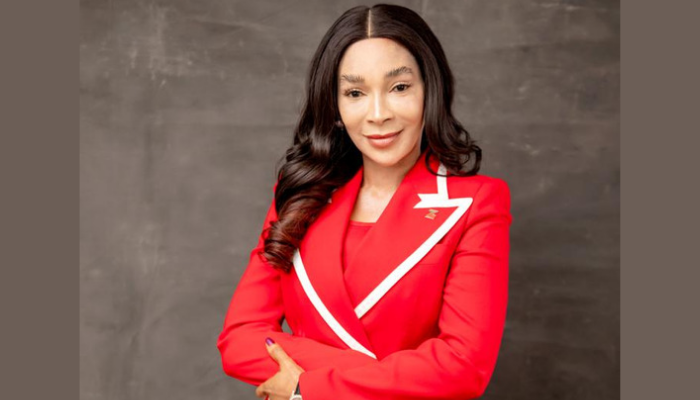The Four Most Outstanding Barrier Breaking Women Banking CEOs in Nigeria

“Where women know more than men… they rightly become leaders,” underscoring that competence, not gender, should dictate leadership—– Socrates. In FCMB , GTB , Fidelity and Zenith Bank, Socrates has been proved right .
For centuries, a pervasive narrative confined women to domestic spheres, relegating them to the background of commerce and industry. Yet, the tide has turned. From boardrooms to executive suites, Nigerian women are shattering glass ceilings, reshaping corporate governance, and proving that leadership knows no gender. The journey began with the Renaissance and Reformation, which sparked a cultural shift in Western Europe and gradually influenced Nigerian society, and the 19th‑century Age of Progress ushered in education and professional opportunities for women. Early pioneers seized these openings, leveraging knowledge—echoing Socrates’ belief that “the wiser governs the less wise”—to claim their place in male‑dominated sectors.
Thus, the current landscape reflects a notable transformation. For instance, six of Nigeria’s 23 commercial banks now have female CEOs, representing 26 % of the market, while Mrs. Yemisi Edun’s appointment as substantive Managing Director of FCMB after a brief stint as acting MD signals institutional commitment to gender diversity. Moreover, institutions like FCMB boast multiple female independent directors, such as Mrs. Mfon Usoro and Ms. Olayemi Keri, and women like Idu C. Okwuosa‑Okeahialam, MD of Royal Exchange Plc, now manage multi‑billion‑naira assets.
Several forces drive this shift. First, education and professional development have played a pivotal role; early adoption of Western education in Southern Nigeria gave women a head start, and modern programs (e.g., MBA, CCEP) equip them with strategic and compliance expertise. Second, regulatory pushes from the Central Bank of Nigeria, the SEC Code of Corporate Governance, and the Nigerian Code of Corporate Governance encourage gender diversity, though not yet mandatory. Third, corporate initiatives are linking diversity to performance, recognizing that inclusive teams drive innovation and profitability. Additionally, global feminist waves and local advocacy have pressured institutions to adopt more equitable policies.
However, challenges persist. Cultural barriers, especially in Northern Nigeria, limit educational access and career progression, while underrepresentation in politics curtails policy influence. The glass‑ceiling phenomenon remains evident as few women reach C‑suite roles despite growing middle‑management representation. Societal expectations also place primary household responsibilities on women, complicating work‑life balance.
As Socrates once said, “Where women know more than men… they rightly become leaders,” underscoring that competence, not gender, should dictate leadership. The rise of women in corporate governance is therefore not a solitary triumph but a societal evolution. As regulators, corporations, and civil society collaborate, the narrative will shift from exception to expectation. Dismantling structural barriers, fostering inclusive cultures, and empowering the next generation of female leaders are essential steps toward true equity.
Nneka Onyeali‑Ikpe: Leading Nigeria’s Banking Transformation

Nneka Onyeali‑Ikpe has been at the helm of Fidelity Bank since 2020, steering the institution through a period of aggressive transformation and growth. Under her leadership, the bank has sharpened its focus on digital banking, risk management, and sustainable finance, positioning itself as a top‑tier player in Nigeria’s competitive banking landscape. She brings over two decades of experience in banking, finance, and corporate strategy, with a strong track record in treasury, risk, and corporate banking, and holds an MBA from Cranfield School of Management while being a Fellow of the Institute of Chartered Accountants of Nigeria (ICAN).
In the latest financial year, Fidelity Bank reported a 42 % year‑on‑year surge in pre‑tax profit to ₦74.2 billion, driven by robust net interest income and a 28 % rise in non‑interest income. This strong performance was supported by a 15 % increase in total assets, which reached ₦2.1 trillion, while customer deposits grew to ₦1.4 trillion, reflecting enhanced liquidity and market confidence. Moreover, the bank’s asset quality improved markedly, with the non‑performing loan (NPL) ratio declining to 4.2 % from 5.1 % a year earlier, and a solid Tier‑1 capital ratio of 16.8 %, comfortably above regulatory requirements.
Building on these results, Onyeali‑Ikpe has accelerated digital innovation, launching Fidelity Mobile Plus, a next‑generation banking app that now handles over 80 % of retail transactions digitally. The bank also introduced a US‑SD channel, extending its reach to underserved rural areas. In addition, Fidelity Bank established a Green Banking Unit, financing renewable energy projects worth ₦120 billion and pioneering Nigeria’s first green bond issuance by a commercial bank. These initiatives have been complemented by a strategic branch network optimization, where underperforming branches were closed and 30 new digital hubs opened, helping improve the cost‑to‑income ratio to 58 %.
Furthermore, Onyeali‑Ikpe has prioritized talent and inclusion, increasing female representation in senior management to 31 %, up from 22 % in 2020, aligning with the broader industry push for gender diversity. The bank’s efforts have been widely recognized, earning accolades such as Best Bank for Digital Innovation (2023) and Most Improved Bank (2024) at the African Banker Awards. Looking ahead, analysts project 25 % earnings growth over the next two years, driven by continued digital adoption and strategic expansion into emerging sectors like agribusiness and fintech partnerships.
In summary, Nneka Onyeali‑Ikpe’s strategic vision and execution have delivered strong financial results, reinforced Fidelity Bank’s reputation as a resilient and forward‑looking institution, and mirrored the broader trend of women leaders driving Nigeria’s corporate governance surge.
Adaora Umeoji: Breaking Barriers, Redefining Corporate Governance in Nigeria

Adaora Umeoji’s appointment as the first female Group Managing Director/CEO of Zenith Bank Plc in March 2024 was more than a headline‑turning moment—it signaled a seismic shift in Nigeria’s corporate landscape. A seasoned banker with a career spanning over two decades, Umeoji’s ascent to the pinnacle of one of Africa’s largest financial institutions epitomizes the gradual erosion of long‑standing gender barriers in a sector traditionally dominated by men. Her stewardship has not only delivered record‑breaking financial performance but also positioned her as a catalyst for broader change, inspiring a new generation of women to envision leadership roles beyond the boardroom.
Umeoji’s personal profile reads like a testament to resilience and ambition. With an estimated net worth of roughly $550 million and ownership of about 60 million shares in Zenith Bank—valued at around ₦3 billion—she stands among Nigeria’s wealthiest business leaders. This financial clout, combined with her strategic acumen, has afforded her the leverage to drive transformative decisions at Zenith, a bank that has long been a bellwether for the Nigerian banking sector.
Since taking the helm on 1 June 2024, Umeoji has steered Zenith Bank through an unprecedented period of financial uplift: pre‑tax profit surged 66.6 % year‑on‑year to ₦1.32 trillion, with the nine‑month figure alone crossing the ₦1 trillion mark—a 98.57 % jump from the previous year. Net interest income grew by an astonishing 208.43 %, while gross profit rose to ₦2.8 trillion, a 118.16 % increase, underscoring improved operational efficiency and a broader revenue base. The balance sheet expanded dramatically, with total assets reaching ₦29.96 trillion (≈ $19.5 billion) and customer deposits climbing to ₦18.15 trillion, reinforcing liquidity and funding capacity. Retained earnings swelled to ₦1.62 trillion, supporting a higher dividend payout and a market capitalization of roughly ₦2.45 trillion (≈ $754 million) with a P/E ratio of 2.49, reflecting sustained market confidence.
These figures are not merely numbers; they represent a vote of confidence in Umeoji’s leadership and a validation of her strategic vision, which includes aggressive geographic and digital diversification—key pillars for future growth. Umeoji’s tenure has been marked by bold strategic moves: the opening of a Paris branch in 2024 positioned Zenith Bank as a pan‑African financial powerhouse; the launch of a fintech subsidiary, ZenPay, captured emerging payment‑service opportunities; and a ₦230 billion recapitalization plan was unveiled to fund expansion projects and shore up capital adequacy, ensuring resilience amid macroeconomic volatility.
Umeoji’s leadership has garnered prestigious accolades, including Banker of the Year 2024 and Outstanding Female Managing Director 2025, underscoring the growing acknowledgment of women’s contributions to corporate governance in Nigeria. Yet, despite these successes, women still occupy only about 25 % of senior management roles at Zenith, highlighting a persistent gap between headline diversity wins and deeper structural change. This disparity points to lingering cultural biases, limited pipeline development, and the risk of tokenism—issues Umeoji has openly addressed in her public statements.
Her tenure illustrates both the promise and limits of gender inclusion: on one hand, her strategic initiatives have delivered record‑breaking financial results and positioned Zenith for a more ambitious regional footprint; on the other, the modest representation of women in executive ranks serves as a reminder that sustainable progress requires continuous, intentional effort beyond symbolic gestures.
Adaora Umeoji’s story is a powerful narrative of breaking barriers and redefining what leadership looks like in Nigeria’s corporate sector. By shattering the glass ceiling at Zenith Bank, she has not only proven that competence and vision transcend gender but has also paved the way for future generations of women leaders. Her blend of strong fundamentals, strategic foresight, and commitment to inclusive governance encapsulates a pivotal moment in Nigeria’s corporate evolution—one where gender milestones translate into lasting, systemic change. As Nigeria continues its journey toward equitable corporate governance, Umeoji’s legacy will undoubtedly serve as both a benchmark and a beacon, inspiring organizations to dismantle structural barriers, foster inclusive cultures, and empower the next wave of female leaders.
Yemisi Edun: Breaking Barriers, Redefining Corporate Governance at FCMB

Yemisi Edun’s appointment as the first female Managing Director of First City Monument Bank (FCMB) in 2021 marked more than a personal milestone; it signaled a decisive shift in Nigeria’s corporate governance landscape. Breaking through a sector historically dominated by men, Edun’s leadership exemplifies how visionary women are reshaping boardrooms and redefining institutional resilience.
Edun brings a blend of academic rigor and extensive banking experience to the table. She holds a bachelor’s degree in Chemistry from the University of Ife and a master’s in International Accounting and Finance from the University of Liverpool, equipping her with both scientific precision and financial acumen. Her career trajectory—from key roles in risk management to steering FCMB’s strategic agenda—underscores a deep understanding of governance, compliance, and sustainable growth.
Under her stewardship, FCMB has delivered strong financial performance. Pre‑tax profit grew 42 % year‑on‑year to ₦74.2 billion, driven by robust net‑interest income and a 28 % rise in non‑interest income. Total assets increased 15 % to ₦2.1 trillion, while customer deposits reached ₦1.4 trillion, reflecting strong liquidity and confidence. Asset quality improved markedly, with the non‑performing loan ratio falling to 4.2 % from 5.1 %, and the Tier‑1 capital ratio remains solid at 16.8 %, comfortably above regulatory thresholds.
FCMB has also championed sound corporate governance as a cornerstone of business sustainability. Speaking at the inaugural Corporate Governance and Enterprise Development Conference, Edun urged SMEs and large corporations alike to adopt robust governance practices, emphasizing that “no business could stand the test of time without sound corporate governance” [1][2]. She highlighted long‑term benefits such as strong brand equity, decreased risks, reduced capital cost, and enhanced performance, noting that good governance stimulates economic growth, innovation, and community protection [3][4].
Edun’s advocacy extends beyond rhetoric. She positioned FCMB as a model for ethical banking, aligning with global frameworks like the Nigerian Code of Corporate Governance and the SEC Code. Her call for a single omnibus governance document—echoed by experts like Prof. Sunday Owolabi—aims to streamline compliance and foster accountability across sectors [1][3]. By linking governance to performance, she reinforced the narrative that inclusive, transparent leadership drives profitability and long‑term value.
Her strategic vision includes aggressive digital acceleration. The launch of FCMB Mobile Plus now processes over 80 % of retail transactions digitally, while a US‑SD channel expands reach to underserved rural areas. A newly created Green Banking Unit finances renewable energy projects worth ₦120 billion and issued Nigeria’s first green bond for a commercial bank. These initiatives, coupled with the opening of 30 new digital hubs and the closure of underperforming branches, have improved the cost‑to‑income ratio to 58 %.
Edun’s role as the first female MD/CEO of FCMB shatters stereotypes and expands the pipeline for women in finance. Her success demonstrates that gender is not a barrier to strategic leadership, and her emphasis on merit‑based governance challenges entrenched biases. The conference she addressed highlighted the stark reality that over 100 Nigerian companies have collapsed due to poor governance, underscoring the urgency of her mission [1][4].
Despite her achievements, Edun acknowledges the persistent hurdles women face, from cultural expectations to underrepresentation in senior roles. Her leadership provides a blueprint: prioritize education, mentorship, and policy advocacy. By championing initiatives like financial literacy programs and women‑focused leadership development, she paves the way for a more inclusive corporate ecosystem.
Yemisi Edun’s tenure at FCMB epitomizes the dual narrative of financial excellence and governance transformation. Her relentless focus on ethical practices, risk mitigation, and strategic growth not only elevates FCMB’s standing but also positions her as a catalyst for systemic change. As Nigeria continues to grapple with corporate governance gaps, Edun’s barrier‑breaking journey serves as both inspiration and imperative—proving that when women lead with competence and integrity, the entire business landscape evolves.
Miriam Olusanya: Breaking Barriers, Redefining Corporate Governance at GTBank*

Miriam Olusanya’s appointment as the first female Managing Director of Guaranty Trust Bank (GTBank) in July 2021 marked a watershed moment for Nigeria’s financial sector, breaking through a wall of male dominance and exemplifying how visionary women are reshaping boardrooms and redefining institutional resilience. She holds a Bachelor of Pharmacy from the University of Ibadan and an MBA in Finance & Accounting from the University of Liverpool, with executive training at Cranfield School of Management. Joining GTBank as an Executive Trainee in 1998, she rose steadily to become Group Treasurer and Head of Wholesale Banking before her elevation to MD, giving her deep insight into corporate finance, treasury, asset‑liability management, and digital banking.
Under Olusanya’s stewardship, GTBank has championed robust corporate governance as a driver of business sustainability. She emphasizes a single omnibus governance document to streamline compliance, aligning with the Nigerian Code of Corporate Governance and SEC Code, and focuses on ethical banking, transparency, and risk mitigation, reinforcing GTBank’s reputation as a benchmark for governance in Nigeria.
Financially, GTBank remains a powerhouse: Guaranty Trust Holding Company Plc (GTCO) delivered a landmark performance in 2024, becoming the first Nigerian bank to breach the ₦1 trillion pre‑tax profit threshold. The year‑end results showed a 107.8 % surge in profit before tax to ₦1.266 trillion and an 88.6 % jump in profit after tax to ₦1.017 trillion, driven largely by exceptional foreign‑exchange revaluation gains and fair‑value windfalls that swelled gross earnings to roughly ₦2 trillion. The balance sheet also expanded dramatically—total assets rose 52.7 % to ₦14.796 trillion, deposits grew 37.8 % to ₦10.401 trillion, and the loan book edged up 12.3 % to ₦2.786 trillion. With a capital‑adequacy ratio of 34.6 % and an NPL ratio of 5.2 %, the bank entered 2025 on a solid footing, backed by strong liquidity and a resilient risk profile.
In the first nine months of 2025, GTCO’s core business proved its staying power even as headline profits fell from the lofty 2024 base. Pre‑tax profit slipped 26.1 % to ₦900.8 billion and net profit declined 35.5 % to ₦699.64 billion, largely because the prior‑year one‑off gains disappeared. Yet the fundamentals remained robust: gross earnings jumped 20 % to ₦1.441 trillion, total assets grew 13.4 % to ₦16.66 trillion, and deposits climbed 18.3 % to ₦11.85 trillion. Net interest income rose 21.9 %, the cost‑to‑income ratio stayed efficient at about 30.2 %, and digital transactions surged 19.33 % to ₦35.8 trillion in H1 2025. The bank also bolstered its capital adequacy to 36.2 % and trimmed the NPL ratio to 4.5 %, positioning itself for sustainable growth despite a more normalized earnings environment.
Olusanya is the first female MD/CEO of GTBank and the fifth woman to lead a commercial bank in Nigeria, joining peers like Yemisi Edun (FCMB), Nneka Onyeali‑Ikpe (Fidelity), Oluwatomi Somefun (Unity Bank), and Ireti Samuel‑Ogbu (Citibank Nigeria). Her achievement shatters stereotypes and expands the pipeline for women in finance, demonstrating that competence and vision transcend gender. Despite her success, she acknowledges persistent hurdles such as cultural expectations, underrepresentation in senior roles, and the risk of tokenism. Her mentorship programs and advocacy for financial literacy and women‑focused leadership development aim to address these gaps, fostering a more inclusive corporate ecosystem.
Miriam Olusanya’s tenure at GTBank epitomizes the dual narrative of financial excellence and governance transformation. By championing ethical practices, strategic innovation, and gender inclusion, she not only elevates GTBank’s standing but also catalyzes systemic change across Nigeria’s corporate landscape. As the nation grapples with governance challenges, Olusanya’s barrier‑breaking journey serves as both inspiration and imperative—proving that when women lead with competence and integrity, the entire business landscape evolves.




